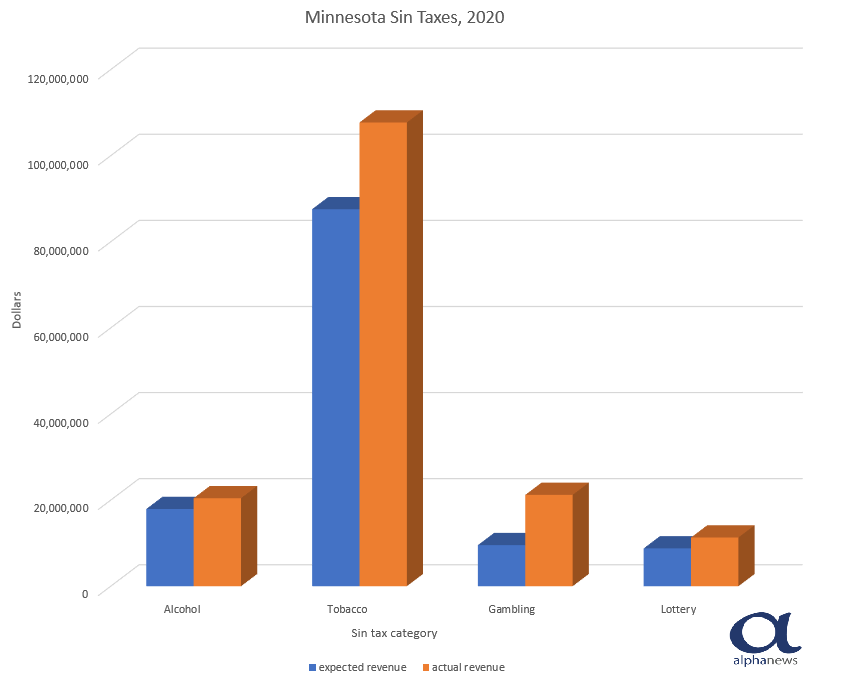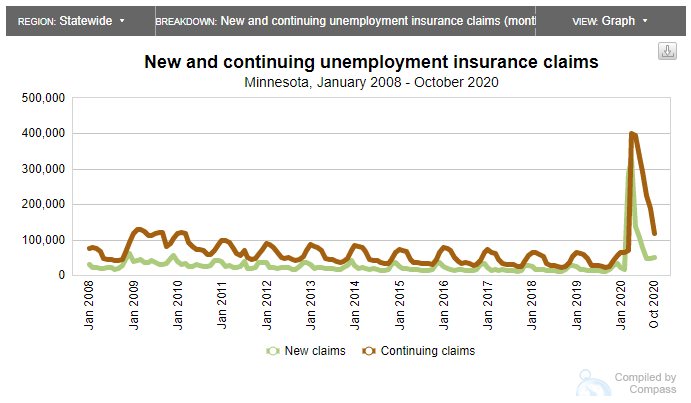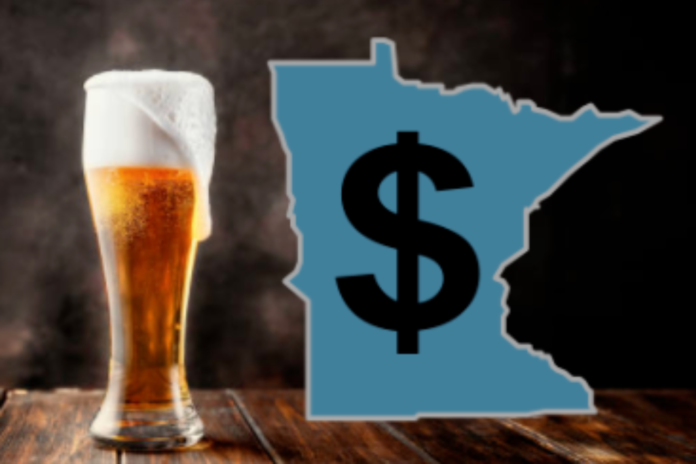Minnesotans are drinking, smoking and gambling at a higher rate than usual under the shadow of COVID-19, which is good news for the state’s tax collectors.
Between July and September 2020, Minnesota took in $160,676,000 of “sin taxes,” money generated through the lottery and extra sales taxes placed on alcohol and tobacco, per state data. This figure is 23% (roughly $37 million) higher than the projected revenues derived from these areas.

Minnesotans gambled at an epically high rate amid the coronavirus pandemic and corresponding shutdowns. The state only predicted it would collect $9,539,000 in gambling related taxes between July and September. Instead, it received $21,203,000 — a difference of 45%.
This rate of gambling could be a symptom of desperation as Minnesota unemployment insurance claims are still being filed at a historic rate, according to data collected by the Minnesota Department of Employment and Economic Development, presented by Minnesota Compass.

In late 2019 and early 2020, Minnesota had a $1.3 billion budget surplus. Now this excess has totally disappeared, leaving a $2.4 billion deficit in its place, according to MinnPost.
Unlike other states that have experienced finical losses as a result of COVID, Minnesota has not taken any measure to reduce spending, much to the chagrin of state Republicans, MinnPost reported.
Meanwhile, deaths of despair, those resulting from suicide or depression-related alcoholism and drug abuse, are on the rise. The Well Being Trust in coordination with the Robert Graham Center for Policy Studies found that as many as 75,000 people could suffer deaths of despair amid the coronavirus lockdowns.
This trend mirrors increases in general despair that have apparently resulted from the virus and the governmental response to it. In 2017 and 2018, 8.5% of U.S. adults reported depression symptoms. A survey that ran from March 31 through April 13 found that nearly 30% of US adults reported depression symptoms during the virus, per a peer reviewed study listed in JAMA.












